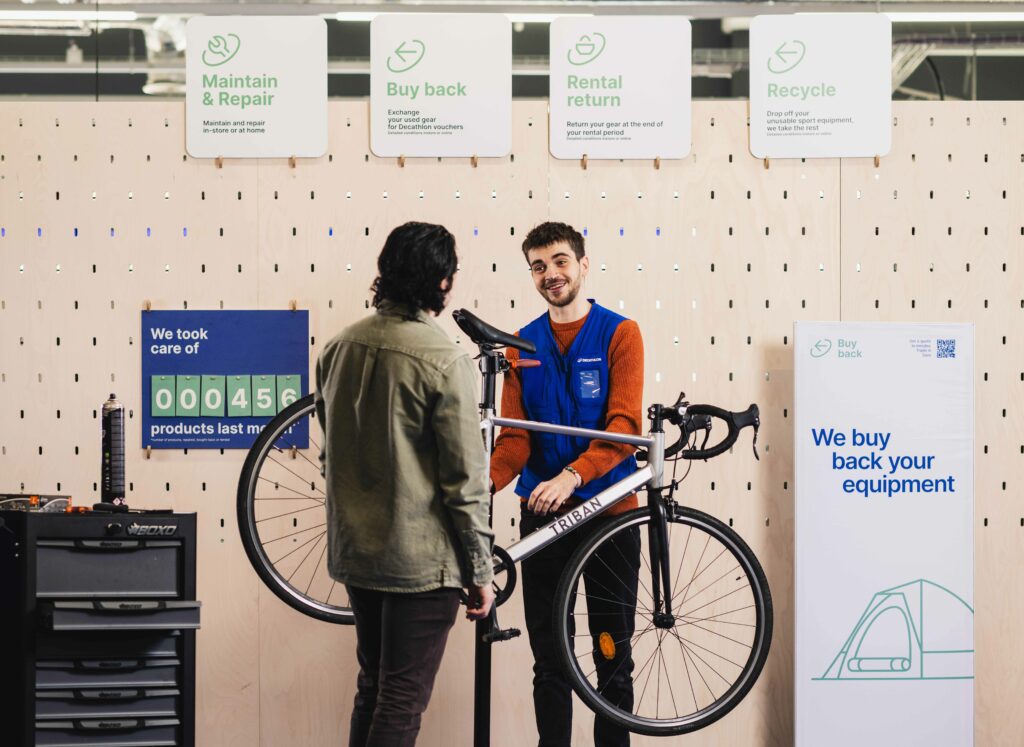The flexibility and easy-going nature of the shop floor retail has always attracted a wide and varied workforce to the retail sector. But as part of the largest private sector employer in the UK, retailers looking to embracing genuine change and reflect our ever-changing society need to do that across every level of their organisation.
With consumers increasingly shopping in line with their values (almost 30 per cent of shoppers prefer a retailer that reflects their views), creating an inclusive culture is vital for any retailer looking to connect with a progressively open-minded and diverse customer base.
“Diversity and inclusion is about ensuring the industry reflects the people it serves, offering opportunities for everyone to work and grow in retail,” Helen Dickinson OBE, chief executive of the British Retail Consortium (BRC), told Retail Gazette. “Inclusion is no longer optional; it is business critical.”
The diverse range of talent seen on the shop floor is rarely mirrored in head office or across senior leadership teams, and this can lead to a disconnect between what is seen by customers and those leading and influencing behaviours.
“The first step to achieving change is acknowledging and understanding where the challenges lie,” Dickinson continued.
“In recent years, retail has taken strides to improve gender equality and women are increasingly represented at the top, making up around 30% of boards and executive committees. But, given women make up two-thirds of the industry, there is still a way to go.
“It is a similar story for other groups – from those of ethnic minority backgrounds to those who are disabled – all remain underrepresented on boards and executive committees.”

With pressure mounting to ensure promoting equality is entrenched into business practices at every level, the BRC launched a Diversity and Inclusion Charter earlier this year, helping retailers challenge their culture and embed diversity and inclusion into every aspect of their business.
Over 60 retailers have already signed up, pledging their commitment to help the industry better reflect the people it serves.
“It is essential that retailers act to put in place the positive changes that improve diversity and inclusion across the industry,” Dickinson added. “This is not a change that can simply happen at the top or the bottom – it is a culture that must permeate every firm in every sector of retail.”
With most forward-thinking retailers already making concerted efforts to set and meet diversity and inclusion targets, it is widely accepted that these changes result in a range of positive business outcomes such as increased innovation, growth, retention, productivity and – of course – profits.
At Tesco, Leon Donald’s day job sees him manging a core FMCG department, but as an active diversity and inclusion ambassador, he is also the project lead for Tesco’s Black Action Plan and sits on the retailer’s Black Voices Advisory Group, part of the wider Race and Ethnicity Network.
“We are on a journey at Tesco in regard to diversity and inclusion. Our strategy has come a long way, but we recognise there is much more we can do”
“There are two sides to this issue,” he begins. “The moral case and the business case. On the moral side, it’s important that everyone feels welcome and shares a sense of belonging, allowing all colleagues to bring their best and most productive selves to work.
“On the business side, a robust diversity and inclusion strategy is a key source of differentiation and competitive advantage. It is a key factor considered by Gen Z when they decide to join an employer.”
“Tesco is a responsible and sustainable business,” Donald continues. “This means recognising our impact and taking reasonable and meaningful steps to ensure we remove all barriers – including those which disproportionately impact Black people.”
Figures from the Office for National Statistics indicate the UK’s Black community has the highest rates of unemployment and lowest rates of wealth in the country. There are currently no Black CEOs, CFOs or chairs in any of the FTSE 100 companies, highlighting the unique cultural barriers faced by the community.
“The Black Action Plan is Tesco’s business intervention for the Black community which we are in the process of rolling out across the group,” Donald explains.
“It centres the Black experience with key initiatives, removing barriers that disproportionately impact our Black customers, colleagues, suppliers and the wider community.”
Tesco’s approach here is one of equity rather than equality; it has taken an intensive focus for the cultural group it believes needs the biggest business intervention.
“We are on a journey at Tesco in regard to diversity and inclusion,” Donald adds. “Our strategy has come a long way, but we recognise there is much more we can do.”
Also driving the conversation from the front is Marks and Spencer, which has seven colleague-led inclusion networks to help the group set the tone and pace of its approach.
The retailer places a significant amount of value on listening to its employees’ experiences and opinions and recently made national headlines for being the first national retailer to introduce pronouns on name badges – an idea which came directly from a member of staff.
“We take an inclusion first approach, because there’s no point in bringing in excellent diverse talent if they won’t feel they belong once they’re here,” explains external communications manager Kirstin Scott.

“M&S is a retailer with thousands of colleagues and millions of customers and we sell products to an incredibly diverse range of people. We want to create an inclusive culture of belonging for everyone.”
Stating its intentions clearly with an active Inclusion, Diversity and Equal Opportunities policy, M&S believes that systemic, cultural change comes about through awareness supported by policy, so a huge part of the retailer’s work is focused on learning and education.
“There’s no silver bullet to progress – each thing you do brings a one per cent improvement. You have to do one hundred things to get to 100%!”
By actively partnering with external organisations who can help shine a light on the best talent – such as the 10,000 Black Interns scheme – M&S is working hard to ensure its workforce is as diverse as possible.
“It is a phenomenal scheme,” Scott continues. “We were the first major retailer to sign up and our first intake will join us in summer 2022.”
As the M&S group head of inclusion and diversity, Cleo Thompson has also recently been appointed the Government’s Disability and Access Ambassador for the retail sector.
“Cleo’s focus on making the industry a more inclusive place to work and shop for the 14 million people in the UK who have a visible or non-visible disability, also supports our inclusive strategy and ensures that M&S continues to be a leader in this space,” adds Scott.
“There are so many opportunities for retailers to get involved with this often-overlooked section of the diversity agenda – and doing so is where real change lies.”
Click here to sign up to Retail Gazette‘s free daily email newsletter


















